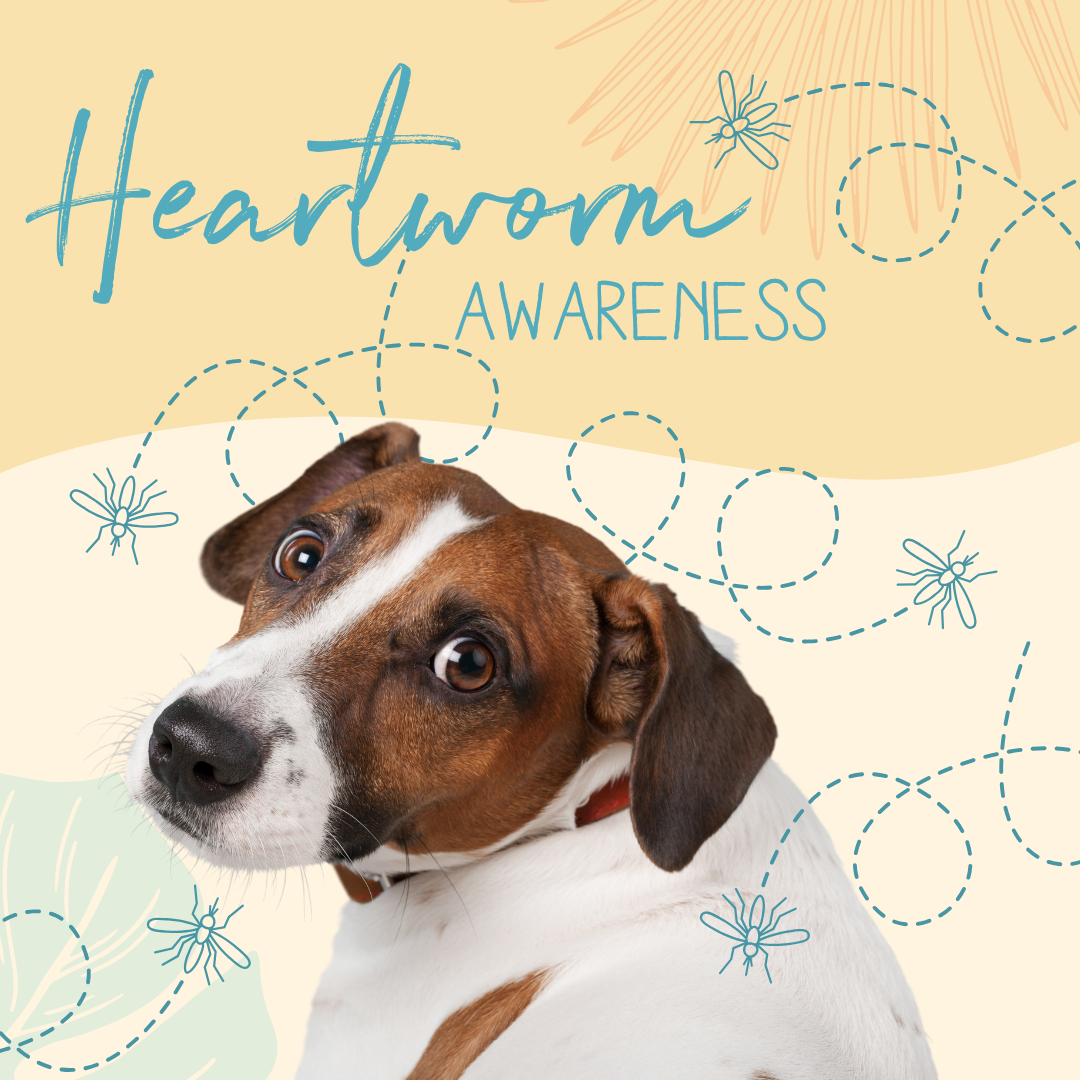
Heartworm
Learn what heartworm disease is, how it is treated, and how prevention is key in keeping your animal loved one healthy.
WHAT IS A HEARTWORM INFECTION?
Adult heartworms are similar in size and length to a piece of spaghetti and live in the tissues of a pet’sheart and lungs. At this stage, the worms can inflict severe damage on an animal’s body, leading to life-threatening health issues. In the heart, these parasites can obstruct the proper function of the heart valves, leading to heart failure. In the lungs, they can cause lung disease and significant inflammation. This leads to symptoms like coughing, difficulty breathing, and decreased oxygenation of the blood.
The presence of heartworms can also lead to a condition known as caval syndrome. In this critical situation, a large mass of worms physically blocks the flow of blood through the heart. Over time, the chronic presence of heartworms can lead to damage in other organs due to the reduced efficiency of the heart and lungs. Dogs are the ideal host for heartworms to thrive, although cats are also at risk of an infection. Cats suffering from immune diseases are especially at risk.
SYMPTOMS OF A HEARTWORM INFECTION
In canines, symptoms can range from mild to severe, often depending on the stage and severity of the heartworm infection. Initially, dogs may show little to no symptoms. However, as the disease progresses, owners might observe a mild, persistent cough, which is one of the earliest signs. At its most critical, the disease can cause sudden collapses or cardiovascular collapse, requiring immediate veterinary attention.
In felines, the signs of heartworm infection can be quite different and often more subtle than in dogs, making the condition harder to detect. Unlike dogs, cats may not show any signs until the disease is advanced. When symptoms do appear, they are often mistaken for other common feline conditions. One of the most notable symptoms is a cough, which can be mistaken for asthma or bronchitis.
TREATMENT OF A POSITIVE INFECTION
Treating heartworm in dogs is a complex and potentially risky process, requiring careful veterinary supervision. The entire process is lengthy, extending over several months. The standard treatment involves the administration of a series of injections of a drug which is specifically designed to kill adult heartworms, but can be hard on the body. Before this treatment, dogs are often given a course of antibiotics, to manage secondary bacterial infections and heartworm preventatives to target baby heartworms. It’s critical to restrict the dog’s exercise during and after the treatment period, as increased physical activity can lead to severe complications when the dead worms begin to decompose and get carried to the lungs. Treatment can also include supportive care, like medications to reduce inflammation and improve heart function.
Unfortunately for cats, treatment for heartworms is more limited. Treatment involves application of monthly heartworm preventative to target baby heartworms which are being reproduced, while waiting for the adult heartworms to reach the end of their life cycle. In felines, heartworms can live 2 to 3 years.
HOW DO PREVENTATIVES WORK?
Fortunately, prevention of heartworm for cats and dogs are simple to administer, and are significantlyless costly than treatment. Such products work to prevent heartworms by targeting the microfilariae (baby heartworms) released into the bloodstream by mosquitos, keeping them from maturing into dangerous adults. Some products preventing heartworm also have the benefit of preventing fleas, ticks, and some intestinal parasites as well. Heartworm prevention is dependent on weight.
Many canine heartworm preventative products come in a delicious meat flavored chewable form, and are administered monthly. Heartworm prevention may also come in the form of an annual injection, which slowly releases antiparasitics over time in the bloodstream.
Feline heartworm preventatives are always topical, as the physiology of a cat is a bit more sensitive to the antiparasitics. NEVER give canine heartworm prevention to a cat, as this would cause them to fall ill enough to require hospitalization. Topical prevention comes in a small tube,which is applied monthly between the shoulder blades where it cannot be licked off. The medication is absorbed into the bloodstream, where it targets baby heartworms.